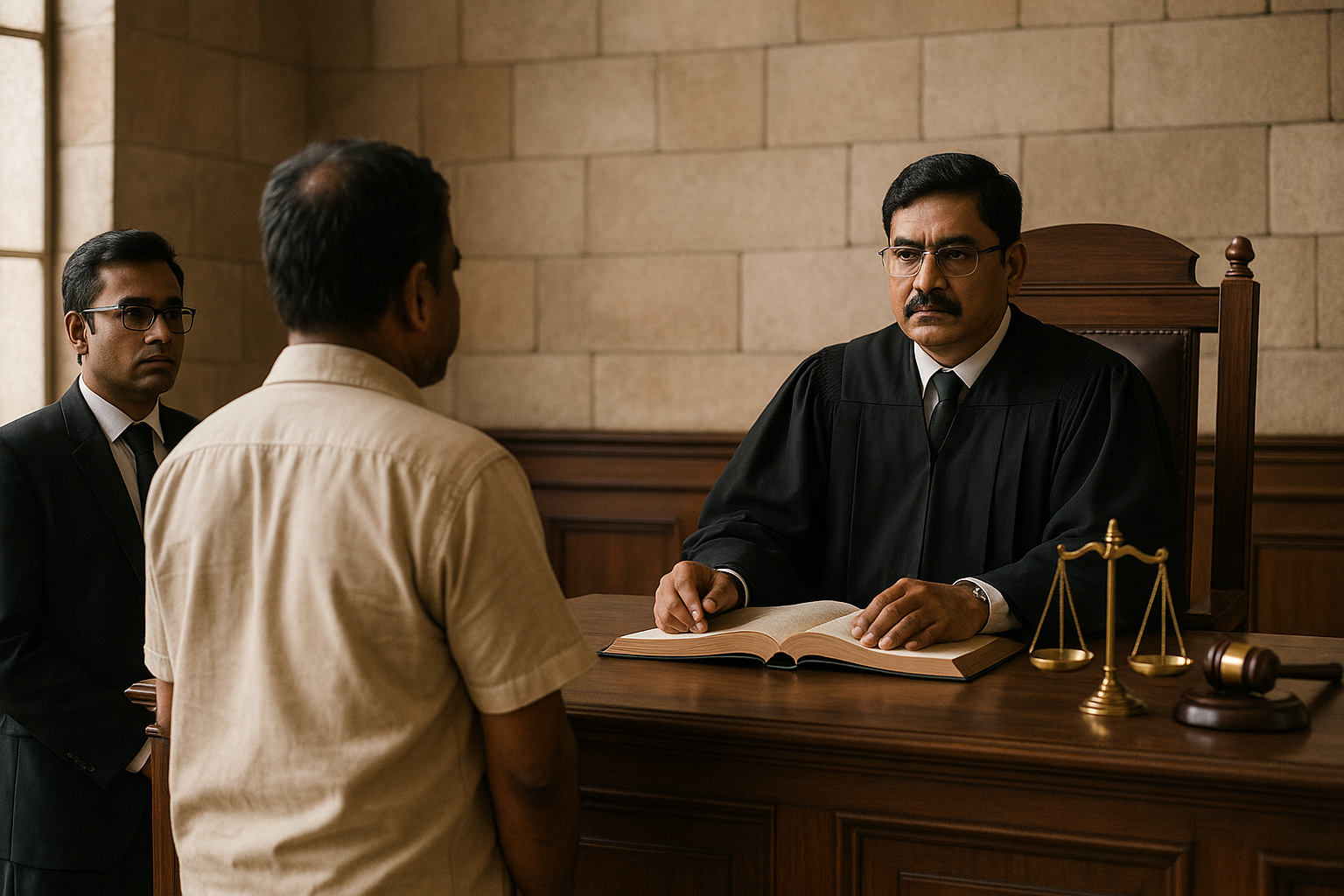In this case, the Patna High Court dealt with a writ petition filed by a guarantor against the sale of mortgaged property under the SARFAESI Act, 2002. The petitioner sought a direction to the District Magistrates of Gaya and Rohtas not to deliver possession of the mortgaged property to the respondent bank, and to quash the bank’s sale notice dated 30.04.2017, published on 01.05.2017.
The dispute arose from a substantial loan (over ₹40 crore) given to a company for which the petitioner had mortgaged property as collateral. The bank classified the loan account as a Non-Performing Asset (NPA) on 30.09.2014 and issued statutory notices under the SARFAESI Act.
Initially, the petitioner challenged a 2016 possession and sale notice before the Debts Recovery Tribunal (DRT), which quashed them due to procedural lapses. However, the bank later issued fresh notices—possession on 03.12.2016 and sale on 30.04.2017. The petitioner, instead of returning to the DRT, directly filed this writ petition in the High Court.
The petitioner claimed the classification of the account as NPA was improper and not in line with RBI guidelines. He also argued that the District Magistrate (DM) should have given him a personal hearing before allowing the bank to take possession under Section 14 of the SARFAESI Act.
The Court thoroughly examined the SARFAESI framework and concluded that the role of the DM under Section 14 is administrative, not judicial. The DM’s duty is limited to verifying the facts presented by the bank through affidavit—not to adjudicate borrower-bank disputes. The DM only needs to be satisfied that statutory requirements have been met. The High Court also observed that the petitioner had already raised similar objections before, which were rejected or withdrawn in previous cases.
The petitioner had also failed to utilize the alternate statutory remedy available under Section 17 of the SARFAESI Act by filing an application before the DRT regarding the fresh sale notice. Instead, he directly approached the High Court, which the Court found improper.
Ultimately, the High Court upheld the DM’s order and the sale process initiated by the bank, finding no procedural irregularities.
Significance or Implication of the Judgment
This judgment is significant for both borrowers and banks. It affirms that District Magistrates act in an administrative capacity under Section 14 of the SARFAESI Act. Borrowers cannot expect a judicial hearing at that stage. The proper forum for challenging bank actions under SARFAESI is the DRT, not the High Court, unless there is a violation of fundamental rights or lack of jurisdiction.
For the general public, especially property owners and guarantors, the ruling is a clear reminder that mortgage-backed financial liabilities can lead to the sale of secured assets, and that objections must be raised before the correct legal forum.
Legal Issue(s) Decided and the Court’s Decision
- Whether the District Magistrate is required to grant a personal hearing before passing an order under Section 14 of the SARFAESI Act?
- Decision: No. The DM’s role is administrative and limited to verifying facts through affidavits.
- Whether the High Court should entertain a writ petition when statutory remedies under Section 17 of the SARFAESI Act are available?
- Decision: No. The writ petition was dismissed for not availing the alternative remedy.
- Whether the sale notice was valid and compliant with statutory provisions?
- Decision: Yes. The Court found the bank complied with the statutory requirements.
Judgments Referred by Parties (with citations)
- Keshavlal Khemchand and Sons v. Union of India, (2015) 4 SCC 770
- Kanaiyalal Lalchand Sachdev v. State of Maharashtra, (2011) 2 SCC 782
- Standard Chartered Bank v. Noble Kumar, (2013) 9 SCC 620
- Rakesh Sharma v. State Bank of India, Allahabad High Court
- Kumkum Tentiwal v. State of U.P., Writ-C No. 38578 of 2018
Judgments Relied Upon or Cited by Court (with citations)
- Standard Chartered Bank v. Noble Kumar, (2013) 9 SCC 620
- Authorized Officer, Indian Bank v. D. Visalakshi, Civil Appeal No. 6295 of 2015
- Syndicate Bank v. Rajesh Kumar, LPA No. 1475 of 2014, Patna High Court
- United Bank of India v. Satyawati Tondon, (2010) 8 SCC 110
- Union of India v. Jyoti Prakash Mitter, AIR 1971 SC 1093
- J. A. Naikastam v. Prothonotary, AIR 2005 SC 1218
- D.R.A.R.M. Educational Institution v. Educational Appellate Tribunal, AIR 1999 SC 3219
Case Title
Sri Akhouri Gopal v. State of Bihar & Ors.
Case Number
CWJC No. 7584 of 2017
Citation(s)
2020 (1) PLJR 112
Coram and Names of Judges
Hon’ble Mr. Justice Rajeev Ranjan Prasad
Names of Advocates and who they appeared for
- Mr. Arbind Kumar Jha – Advocate for the petitioner
- Mr. Manoj Kumar (A.C. to GP4) – For the State
- Mr. Santosh Kumar Singh – Advocate for the Bank
Link to Judgment
https://patnahighcourt.gov.in/viewjudgment/MTUjNzU4NCMyMDE3IzEjTg==-V8yJkZWcuzE=
If you found this explanation helpful and wish to stay informed about how legal developments may affect your rights in Bihar, you may consider following Samvida Law Associates.









